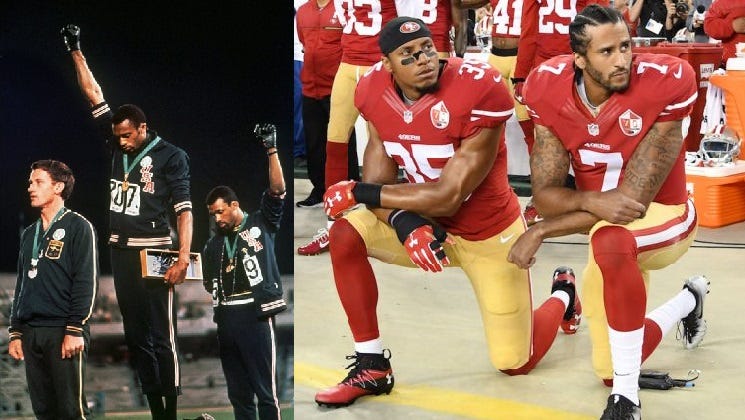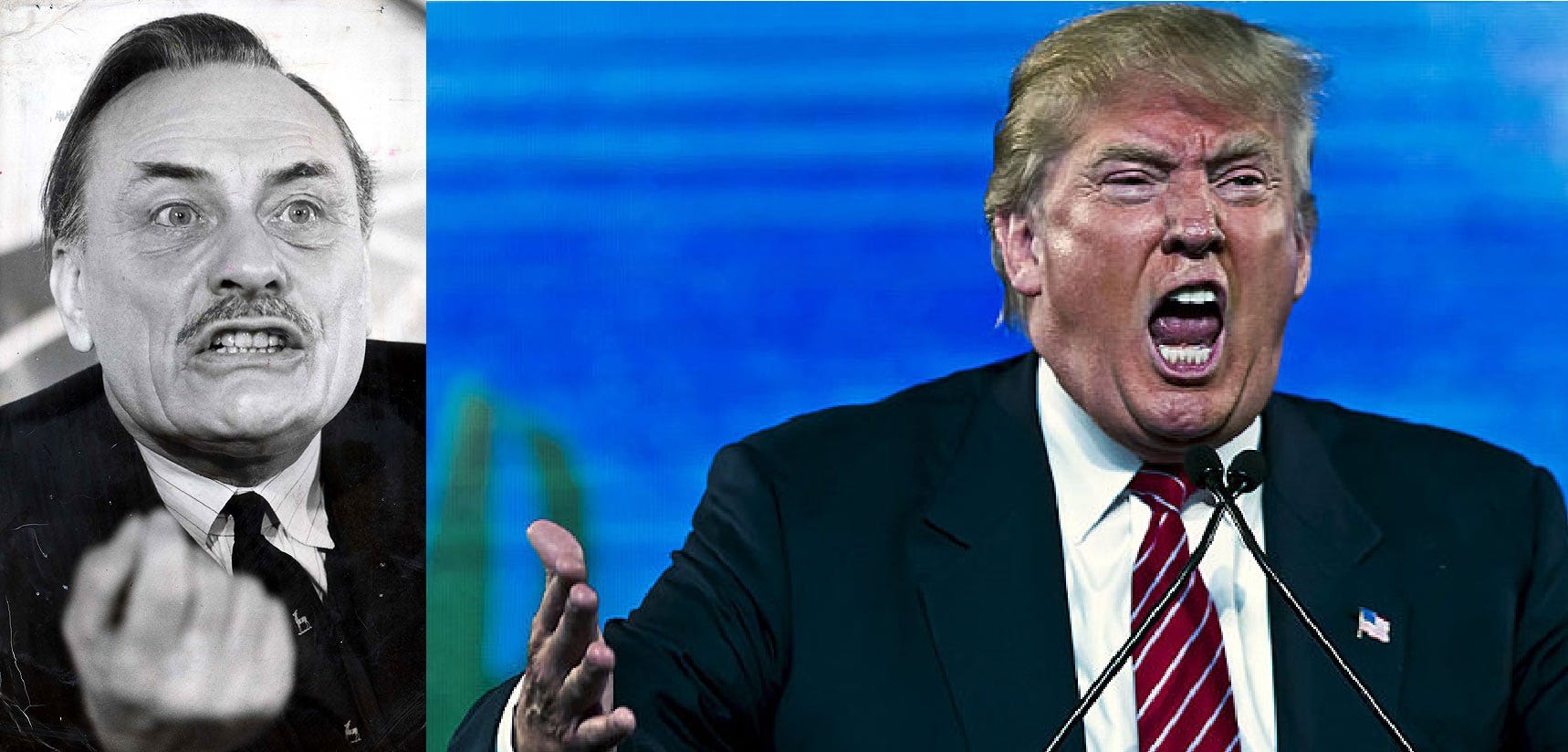There is no love lost between the boomers and me. I couldn’t explain it better than this, so I recommend the read if you care to understand my reasons. But I have to give them credit for one thing. When it came right down to it and the game was on the line, they put their money where their mouth is and changed the fucking world.
It might be why they did little to impress afterward. Maybe they figured they had triumphed, that the revolution was complete. Maybe they felt they had done their part and deserved the rest. It must have been incredibly taxing, altering the human narrative as they did. Perhaps it took it all out of them.
1968 was the single most pivotal year in modern history, comparable only to 1945, the year when the boom began. For the boomers, at least the cohort I’m referring to, although many of the principal actors in ’68 were actually born years before, it was their Midway, their Stalingrad, their Ardennes, literally their Khe Sahn. It was a turning point in the war.
The list of achievements that year is too long to do it justice here — 2001: A Space Odyssey, Apollo 8, ASC II, hypertext, The Beatles’ White Album — a litany of innovations that defined the next 50 years. But none of them hold a candle to what was truly accomplished. For all of its subtext, Planet of the Apes doesn’t fully capture the political and social upheaval that marked 1968.






It’s telling that current Canadian Prime Minister Justin Trudeau’s father, Pierre Elliott Trudeau, was sworn into that same office in 1968. The corollaries between that year and this — a conservative political climate committed to the restoration of “law and order”, black athletes protesting entrenched racism, a long standing American military occupation of foreign soil, nationalist politicians speaking out against immigration — are numerous enough to give pause. There is one marked difference, however. When the powers seeking to maintain the cultural and economic establishment they aimed to dismantle came out to crush them, rather than sit around and complain about the status quo, the boomers actually took to the streets and did something about it.


And they had every reason not to. One by one, the leaders of their movement, beginning with JFK in 1963, had been assassinated, often right before their eyes. Their government, society at large, even their parents, were all aligned against them. They were literally attacked, jailed, beaten, shot. And still they struggled on.


Compare that to today, when, faced with levels of inequality and injustice that rival the days of serfs and emperors, the best we can muster is a hashtag campaign on social media. It’s sad really. Every attempt at moving forward, at creating the level of fundamental shift such as the boomers achieved in 1968, is consumed from within, sold out before it can even begin to assume its true potential. Sure, Steve Jobs and Bill Gates went corporate, but only as a means for achieving their greater goal, that of enabling others. The money just followed. Gen X spent no time at all devolving the internet into a commodified caricature of its original intent. Those attending the current analogue, cryptocurrency and blockchain, with their arguably greater capacity for moving humanity into the next epoch of prosperity and enlightenment, didn’t even wait that long.
Could it be that we are incapable of such conviction? That this is one of those things, like so many others, that the boomers neglected to impart to us? Can we hope to regain the fortitude necessary to persist in the face of seemingly insurmountable social, economic and cultural forces, to endure suffering, almost certain failure, maybe death? Is it possible that, as they did in ’68, we need the boomers to take it to the streets, that we might actually need Joe Biden to show us the way?
The problem is, I don’t think they have it in them. And it’s not just my personal “hang-up” with the boomers, to borrow a term they popularized, that leads me to say this. They have told me so themselves.
“We really need the college students of today, and the Gen Xers of today, to take over the world, sooner rather than later,” climate scientist Dr. Steven Running informed me during a recent podcast interview. “Because I have to admit, my generation doesn’t have enough guts to make the changes, they’re too wed to the fossil fuel life, and I think we’re more of the problem then we’ll ever be the solution.”


Still, I wonder if we have the courage, or the skill set. Because, on this golden anniversary of the Year of Protests, the very same war rages on, and we’re not in the streets, and least not like the boomers were. We’re still wed to the same systems — political, social, economic — the majority of which are completely incongruous with our new global civilization, to say nothing of the ecosphere, and I see no indication that we’ll change. It’s clear that, as demonstrated by the successful memes of Brexit and MAGA, all we really want is for things to return to some romanticized vision of the past.
So now we’re putting it on the next generation to save us. But the trouble is, even if the college students of today were to heed Dr. Running’s exhortation, we’re asking them to do so while bound by a straitjacket. We make up the system, the framework, the infrastructure in which the millennials and their younger counterparts are forced to operate. Their generating the impulse necessary to change its momentum would be challenge enough even with our cooperation, let alone when half the available energy is either at rest or actively opposing it.
In other words, this is hard fucking work. No disrespect to Dr. Running, who is still in the trenches, but we’re going to need all hands on deck. Because, unlike the boomers, we’re not merely upending a prevailing culture. What we’re dealing with isn’t just a change in mindset, although that is still an important part of the equation. We literally have the entire apparatus supporting our existence to remake.
Prior to 1968, it was okay to treat people like second-class citizens. It was okay to exploit developing countries through imperialist policies and military action. Those practices were de rigueur. Post 1968, it’s no longer okay, but we continue doing so because our system requires it. And that system is what we have to change.
For all my personal animosity toward the boomers, I readily admit we’re indebted to them, and not just because they gave me life. They spawned an entirely new breed of idealism, one that advanced the notion of equality beyond de facto to make it a priori and then extended it to the rest of the living and non-living systems as well. They altered our very expectation of how the world should be. Quite unlike the virtual nihilism we practice today, the boomers actually believed they could make a difference, and, in 1968, did everything in their power to see that occur.
But this is 2018, not 1968, and it’s high time we manifest that expectation in reality and make incarnate the ideals that the boomers fought to enshrine. Arguments that these things take time or that we must work within the constraints of the current system are worse than denial or outright refusal, only serving to highlight the fact that, while we recognize the need for action, we intend to do nothing about it. Largely because doing something quite likely means enduring the personal discomfort, hardship, and pain that we are currently externalizing to someone else.


Our predicament only becomes all the more vexatious with the realization that there is no one to turn our anger on, no establishment to rail against, no others. In 1968, the battle lines were clear — a new and progressive counterculture united against the forces of an old guard overtly and conspicuously intent upon ensuring the continuation of its ways. Today, we are the establishment, begrudgingly upholding the status quo through a mix of fatalism, apathy, and the understanding that the only confrontation we can expect to have is with ourselves.
That is not to say there is not an established order, a prevailing modality that shouldn’t be assailed and dismantled with the same ardent fervor and resolve as the boomers afforded segregation. There is. It just isn’t going to present itself in the form of us against them. This time around, it is us against ourselves.
Still, we shouldn’t fear the fight, if only to prove to the boomers that we are as capable of driving change in 2018 as they were in 1968. That the generation who tore down the Berlin Wall isn’t about to let another go up. That our policy of non-participation really was a calculated strategy, not a mere attempt at avoidance.
So what does the fight of 2018 look like in real terms? At its core, it revolves around our putting outcome and purpose back in the driver seat and relegating the pursuit of profit to an impetus, rather than an end unto itself. More concretely, it’s about devising solutions to fundamental problems rather than those created by our failure to do so or our desire for distraction. And it means coming to terms with the fact that we really are one unified global community, no matter if we want to be or not.
There is absolutely no chance that we are not moving beyond this present state. It is inevitable and, at the current rate of change, will happen sooner than we think. The only matter up for debate is whether we want that future to resemble a scene from Star Trek: The Next Generation or one from Soylent Green. It’s a catechism we cannot avoid, and, it fact, the question has already been posed. About that, there is nothing we can do. Determining the answer, however, is entirely up to us.



